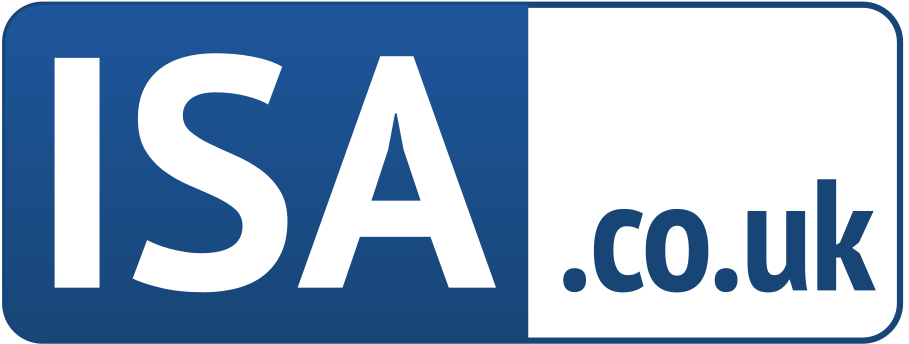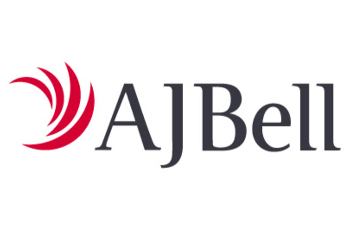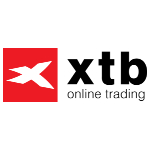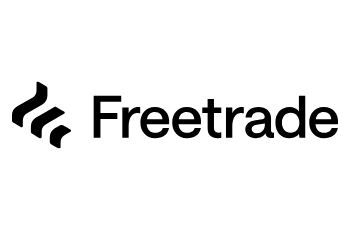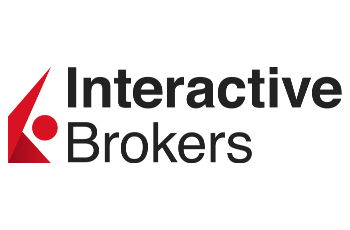Compare Share Dealing ISAs
Choose the best share dealing ISA to invest this year’s tax free allowance.
Investment ISAs put your capital at risk & you may get back less than you originally invested
- Trade From (frequent trader rate): £4.99 (Investor Essentials Plan up to £50,000 in assets)
Good to know: An award-winning ISA that gives you complete control. The second largest platform in the UK with the widest choice of investment options in the market including funds, investment trusts, ETF’s and more. Open online in less than 10 minutes. Access to expert independent ideas and analysis. Low cost fees and trading. Capital at risk. *Open to new customers opening an ISA or GIA between 1st and 31st July (and existing customers adding an ISA only, so not available to existing customers opening a GIA. No minimum deposit required
Show More- Fund Choice: Invest in UK, US and international shares & funds
- Invest From: £25 pm
Good to know: This award-winning ISA has an extensive range of investment options, including thousands of funds and shares, plus a guidance service to help you find investment ideas. There is a low service fee (typically 0.35%), easy online application process and apps to manage your money on the move. Additional charges apply depending on your choice of investments. Plus, everything is backed by Fidelity’s 50 years of investment experience. Boring Money Best Buy ISA 2023
Show More- Trade From (frequent trader rate): £3.50
- Trade From (standard trader rate): £5.00
Good to know: Invest in over 2,000 funds, shares and more across 25 markets. Invest from £25 per month. Which? Recommended Provider for Investment Platforms 2019–2023. Low-cost online dealing from £1.50. Open your account in minutes from app or website, manage your portfolio on the move. FSCS protected. Capital at risk
- Fund Choice: Choose from almost 5500 stocks & funds
- Invest From: £1
Good to know: Choose from almost 5500 stocks & funds. Free ETFs; No Lightyear execution fees on ETFs and earn 3% on uninvested GBP cash. Move interest into high interest Vaults; Earn interest from high interest Vaults. Money is invested into BlackRock Money market funds, currently paying 4.61% AER on GBP (as 12th March 2025). There would be ongoing execution/FX charges based on pricing – FX fees may apply. Capital at Risk. The value of investments can go down as well as up so you may get back less than you invested. This information is not a personal recommendation for any particular investment. If you are unsure about the suitability of an investment you should speak to an authorised financial adviser. Tax treatment depends on individual circumstances and all tax rules may change in the future
Show More- Trade From (frequent trader rate): £5.95 per trade - 20 trades + pm
- Trade From (standard trader rate): £11.95 per trade
Good to know: Online trading charges based on previous month’s activity. 20+ trades made in previous month is £5.95 a trade. 10-19 trades are £8.95 a trade. Less than 10 trades it’s £11.95. Get Access to live prices. Easy set up – Buy & sell shares in minutes! Capital at risk. *HL will refund their annual account charge – no questions asked.
- Trade From (frequent trader rate): £3.00
- Trade From (standard trader rate): £8.00
Good to know: Pay zero commission on US share trades, and just £3 on UK share trades, when you trade three or more times a month with IG. No admin or transfer fees. Custody fee of £24 per quarter, charged if you hold share dealing or ISA assets at the end of the quarter. Capital at risk. Spread bets and CFDs are complex instruments and come with a high risk of losing money rapidly due to leverage. 71% of retail investor accounts lose money when trading spread bets and CFDs with this provider. *Age 18+. UK residents only opening a GIA, ISA or SIPP. Initial trade between 26 June – 15 August 2025
Show More- Fund Choice: Choose from over 6900 instruments
- Invest From: £10
Good to know: Invest in real stocks with 0% commission (for monthly turnover up to 100,000 EUR (then comm. 0.2%, min. 10 EUR)). Over 6900 instruments including Stocks, ETF’s, Investment Plans, Forex, Commodities and Indices. Earn 4.5% interest on GBP uninvested funds. Applying for an account is quick and easy with a secure online form, and you could be trading within minutes. Multilingual customer support team is ready to help you – 24h hours a day from Monday to Friday. XTB is one of the largest stock exchange-listed FX brokers in the world with 1 million+ customers and over 20 years of activity in the financial markets. Capital at risk.
Show More- Fund Choice: Invest in UK, US and international shares & funds
- Invest From: No minimum
Good to know: Commission-free investing: No fees for buying or selling stocks (other charges may apply). Support: Fast and friendly customer support. A wide range of investments: 6,200+ US, UK, and European stocks, ETFs, and investment trusts. Low monthly fees: From £4.99/month. Capital at risk. Other charges may apply. *T&C’s apply
- Trade From (frequent trader rate): £3.00
- Trade From (standard trader rate): £3.00
Good to know: Low cost share trading ISA platform. Sign up in minutes. £3/€3 per trade for UK & most European stocks.US stocks start from $0.005 per trade. Low currency conversion fees. Fractional US or European share dealing. IBKR ISAs provide access to global markets and tools like GlobalAnalyst help you diversify your portfolio internationally. Your account is protected under the US Securities Investor Protection Corporation up to $500,000 (subject to a cash limit of $250,000). Capital at Risk
Show MoreWhat is a Share Dealing ISA?
A Share Dealing ISA is just like a standard share dealing account, but with the added tax benefits of an ISA. As with any other type of ISA, you can invest up to £20,000 in this tax year, and your investments will be completely free of tax.
You can invest in a wide range of stocks and shares within a Share Dealing ISA. With investments ranging from ETFs and Investment Trusts to Managed Portfolios, finding the best account for you can require a lot of research.
This guide will help you understand the benefits and drawbacks of Share Dealing ISAs and explain what to look out for when comparing the different options available. We will also answer the common questions that investors have when they are investing in Share Dealing ISAs.
How does a Share Dealing ISA work?
If you are picking the investments yourself, you will first need to contribute your funds into your ISA account, either as a lump sum or via direct debit. From there, you can purchase shares or funds net of any dealing fees taken by your provider.
Any dividends you receive from your investments can be reinvested or paid out to your bank account, and because they are in an ISA, they will be 100% tax-free.
When you come to sell your holdings, you will also be exempt from paying Capital Gains Tax (CGT) on any growth you have made.
What stocks can I hold in a Share Dealing ISA?
If you are opening a self-invested or a self-select ISA, then you will need to pick your investments yourself. Here is a list of some of the common types of stocks that you can hold in a Share Dealing ISA:
- Shares
- Investment Trusts
- Funds (OEICs & Unit Trusts)
- ETFs (Exchange Traded Funds)
- Tracker Funds
- Corporate & Government Bonds
- PIBS (Permanent Interest Bearing Shares)
- Managed Portfolios
You can usually hold many different types of investments in a Share Dealing ISA, and each of these investments are structured and traded in different ways.
For example, Shares and Investment Trusts are traded live on a stock exchange, so they have a constantly fluctuating price. Funds, on the other hand, only trade once per day. This means that they will only have one fixed price per day.
Shares also represent a holding in just one company. However, an Investment Trust or Fund will pool investors’ money together to invest in a diversified portfolio across a particular sector or industry.
What is the best Share Dealing ISA for beginners?
If you are not confident in picking the investments yourself then you might want to look at managed or ready-made ISA portfolios.
These are managed by professionals and are usually classified by risk profile. This means that you can select a level of risk that you feel comfortable with.
A higher risk portfolio will likely contain more exposure to ETFs, individual shares, and investments in smaller companies with higher growth potential. On the other hand, a lower risk portfolio may prioritise safer investments like cash, Bonds and PIBS that are safe but have limited returns.
Be careful, as you will likely incur higher charges for using these services as the portfolio managers will take a cut for monitoring the portfolio.
What dealing features should I look out for?
If you are looking to trade regularly in your Share Dealing ISA, perhaps to benefit from short term price fluctuations, then there are several account features to make sure your ISA provides:
- Stop Losses: this is a function that allows you to set a trigger on a holding to automatically place a sell instruction when it reaches a certain price. In the event of your stock losing value while you are not paying attention to the live price, this feature could significantly reduce your losses.
- Limit Orders: these are the same as stop losses, but for buy instructions. If a stock price reaches a specified low point when you are not monitoring it, you can set up an automatic trigger to purchase shares in the hope that they then recover and gain value.
- Prices Alerts: similar to the above, price alerts can help you keep track of price fluctuations by notifying you when certain thresholds are met.
- International Stock Exchanges: most Share Dealing ISAs will offer access to European stock exchanges and even some American and Asian markets. Make sure your ISA account facilitates the market you wish to invest in, and look out for any additional dealing fees for overseas transactions.
- Holding Foreign Currencies: if you want to trade on international markets, then being able to hold cash in the designated currency for that stock is a huge plus. You will avoid paying additional exchange rate charges and will not be subject to potentially poor exchange rates at the point of each trade.
- Discounted Frequent Trader Fees: ISAs accounts that are designed for frequent trading often offer discounted fees to investors who make multiple sales and buys in a given month. If you are going to be trading daily, or even weekly, you will want to take advantage of an ISA that offers this feature.
If you are investing more for the long term, then you may want a provider that offers the following valuable features:
- Regular Savings: if you do not want to commit a large sum of money to your ISA straight away, most providers will allow you to contribute a monthly amount via direct debit. This enables you to build your savings in tangent with your income.
- Phasing: if you need to contribute your full ISA allowance before the end of the tax year but do not want to invest it all at once, you may want to phase your investment. This means that you contribute a lump sum to your ISA wrapper but only purchase smaller amounts of stock, regularly, until you are fully invested.
How do I buy shares in a Share Dealing ISA?
Once you have decided on your ISA account, the easiest way to buy shares will be through your online account or via a mobile app.
There may be some stocks that you cannot buy online. For these, you will need to either phone your provider’s trading team or complete a dealing form to send in the post.
What fees will I pay for buying shares?
You will typically pay fees for the following services on your Share Dealing ISA:
- Buying and selling stocks
- Ongoing Provider Fees
- Underlying Investment Charges (e.g., Funds and Investment Trusts will take an annual fee from within your holding)
- Stamp Duty Reserve Tax (SDRT) – 0.5% government tax on electronic share purchases
- Exit fees
The dealing fees you pay will likely vary depending on what stocks you are trading and what method you are using.
If you are buying shares on an overseas stock exchange then you will likely pay higher commission. You may be subject to a percentage charge instead of a fixed fee.
Additionally, it is usually cheapest to trade online. You may pay more for trading over the telephone or by postal instruction.
Your ISA provider will also charge you an annual fee for holding assets. They may also charge more for certain types of stock compared to others.
It is worth researching the different charging structures on each account specifically for what investments you will likely be holding. This way you can get the best deal for your particular investments.
Frequently Asked Questions
hat is a good return on a Share Dealing ISA?
This depends entirely on what investments you hold within your ISA. Unless you are investing in a Cash ISA, there is no fixed rate of return that you can buy into. A Share Dealing ISA will fluctuate in value but ideally rise over the long term.
Is now a good time to invest in a Share Dealing ISA?
This also depends on your underlying investments. Unless you are trading daily to exploit margins and fluctuations in particularly volatile stocks, you should be thinking about the long-term return with your ISA investments. The specific timing of your investment is not a huge factor if you intent to hold them for a long time.
Can I lose money in a Share Dealing ISA?
Yes. It is important to remember that share prices will go down as well as up, and so you may need to be patient with your investments. If you are unsure, a good rule of thumb is not to invest what you cannot afford to lose.
How much can I contribute to a Share Dealing ISA?
The current annual ISA allowance is £20,000 per person for the 2025/26 tax year.
Can I withdraw money from a Share Dealing ISA?
Yes – you will just need to sell your holdings first. Some assets will take longer to sell than others depending on how they are traded, with shares typically being quicker to trade than funds.
Can I have a jointly held Share Dealing ISA?
No. ISA is short for Individual Savings Account and the accounts can only be held individually.
Can I transfer my Cash ISA into a Share Dealing ISA?
Yes, you can transfer from a Cash ISA to a Share Dealing ISA, but you will need to check you are not charged a fee or have your interest void if you surrender a Fixed Rate Cash ISA before the fixed term ends.
